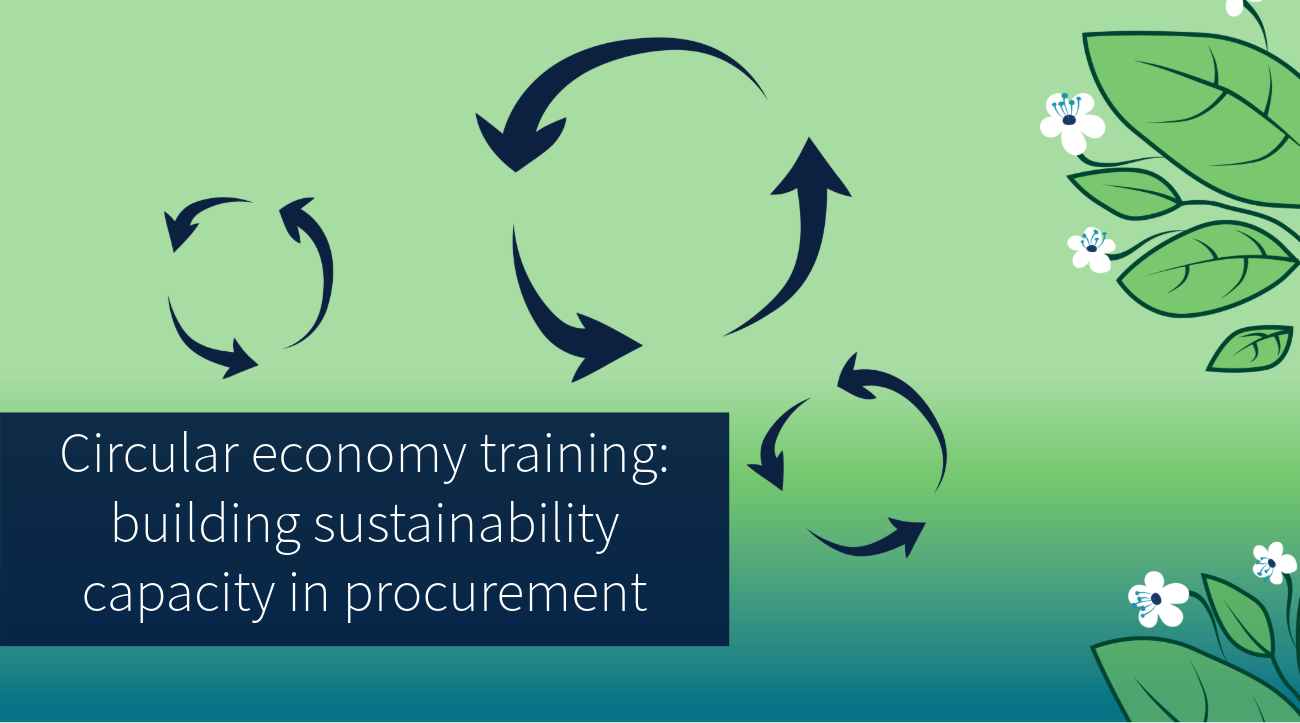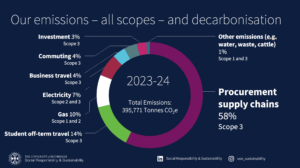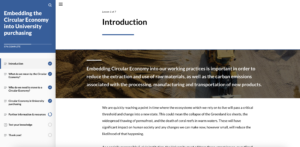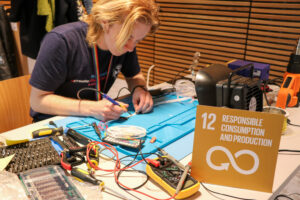Circular economy training: building sustainability capacity in procurement

Learn how we developed circular economy training to empower staff and students to make environmentally and socially responsible purchasing decisions.
Goods, services and works provided to the University make up a giant slice of our greenhouse gas emissions, along with other environmental and social impacts.

Procurement accounted for 58% of University emissions in 2023-24
It’s the responsibility of suppliers to reduce these. However, suppliers don’t hold all the power. We can make more informed decisions on what we do and don’t buy. This is something the University can change.
This change involves upskilling thousands of devolved buyers across the University. One solution: circular economy training.
One of the most impactful changes we can make is to transition towards a circular economy, one that emphasises reducing waste, reusing materials, and recycling resources as much as possible.
By extending the lifecycle of goods and minimising single-use products, we will not only decrease our reliance on finite resources but also lower carbon emissions and landfill waste.
University of Edinburgh Procurement Strategy 2030
How did we do it?
Investigated best practice, and what sort of training is already available.
A member of the Department of Social Responsibility and Sustainability (SRS) team attended the Circular Economy Masterclass, a condensed course run by the University of Exeter, developed with the Ellen Macarthur Foundation.
Decided the best format and method to share these learnings with everyone in the University buying community.
We knew we wanted it to be open and accessible to everyone, so we designed a short online course following these principles:
- Open to all staff and students (students sometimes buy for the University too).
- Short and high level, appreciating that everyone is busy.
- Online, so anyone can complete it at a time and place that suits them.
- Links to external information for more detail, to be expanded and updated as needed.
- Collaboration with academic experts, to make sure that content was of the highest quality.
Created the content
Sections include:
- Why the circular economy is important to the University
- The 10 core circular economy principles
- How the University is already utilising some of these principles
- Actions staff and students can take to embed circular economy thinking when purchasing at the University.

User testing and feedback
This course was tested with a small number of individuals from the Sustainability Champions network as well as academic experts on the topic of circular economy.
Their feedback was really valuable in shaping the final course, making it shorter and more focused on the actions our buyers should take.
I enjoyed the course and am glad to see that in my own small way at work, I’m already adopting the circular economy principles, and always try to find a new home for something that can be used, re-used or re-purposed.
Circular economy training participant
What are the next steps?
This training is recommended for all buyers and requisitioners at the University.
We are now looking at how best to communicate this training to the University’s buying community.
We’re also gathering examples of successful projects taking place across the University to add to this course in a future update.
What can you do?

uCreate repair shop, Learning and Teaching Conference
Complete the training and provide feedback
Expand your knowledge of circular economy and what you can practically change:
Complete the circular economy training
Please complete the feedback at the end so we can continue to improve the course.
Submit a case study
Have you already put these learnings into action? Submit a case study by emailing the Department for Social Responsibility and Sustainability at Responsible.Procurement@ed.ac.uk with the subject line: “Responsible procurement case study.”





Recent comments